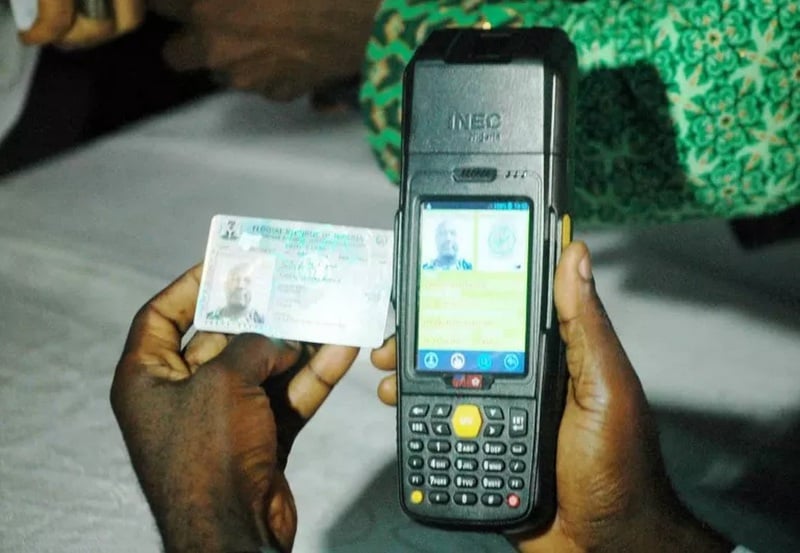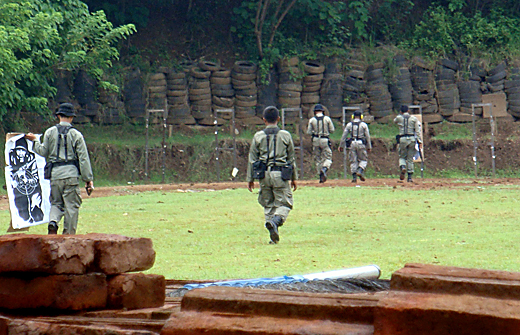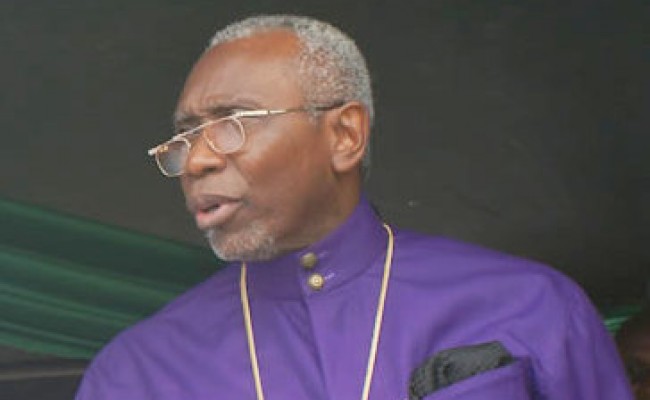In a bid to boost the credibility of the coming polls and lay to rest many controversies surrounding the use of Permanent Voter Cards (PVCs), the Independent National Electoral Commission (INEC) conducted a mock test for the card readers on Saturday.
After the exercise in 12 states across the federations, the responses from the major political players have been obviously patterned along party lines.
While the ruling Peoples Democratic Party (PDP) was unimpressed with the exercise, majority of those favourably disposed to it are from the opposition party.
Olisa Metuh, the national publicity secretary of the PDP, said: “The failure experienced during the exercise vindicates the PDP’s position that the card readers should be thoroughly tested to ascertain their workability for free, fair and credible elections before being deployed for the actual polls.
Advertisement
“The PDP and indeed all well-meaning Nigerians await INEC’s official response and or its final decision after such defining challenges.”
On the other hand, the All Progressives Congress (APC) lauded the process as a successful one, showing INEC’s preparedness for successful polls.
“We, in APC, praise this innovation by INEC. From what we have seen today during the test-run exercise, INEC has demonstrated that it is ready to create a legacy of credible elections in our country,” Tawio Olatubosun, APC publicity secretary in Ekiti, said.
Advertisement
From the rejection of cards, alteration of thumbs, low battery life of card readers to time cost of accreditation per voter, worries abound.
THE SUCCESS
The exercise was a largely successful one in many of the states where it held. In Ekiti, for example, the average accreditation time was between four and eight seconds.
Bayo Olutoso, aprticipant in the process, told theCable that it took him approximately six seconds to get accredited.
“In some six seconds, I was done. I never expected the process to be that fast,” he said.
Advertisement
“I have heard of complaints in other places, but I didn’t experience any hitch. And in the two hours that I stayed here, I didn’t encounter anyone with a problem.
“And even if there are complaints, that is no big deal. This is why it is a test. The essence of the test is to identify lapses so that they can be corrected ahead of election. I’d rather have lapses now than have them on election day.”
On behalf of the European Union Election Observers, Rumi Ana Decheva and Uros Urstga, praised the card-reader initiative, saying it would make the election far more credible.
Elsewhere, though, the songs were not all that sweet.
Advertisement
CLONED CARDS OR CLONED PROCESS
At Oromenike Ward 1 in Port Harcourt, Rivers state, a particular PVC was rejected by the card reader. The INEC officials available said the card was cloned and could not be verified by the card reader.
The owner of the card insisted that his card was not cloned, saying he went through the necessary processes and obtained the card from INEC.
Advertisement
In Niger state, of the 1,799 registered voters who showed up for the exercise, only 1,045 were authenticated by the card readers, potentially disenfranchising 42 percent of the registered voters.
In Taraba state, more than half of those who turned out for verification and whose names were in the voters register, were rejected.
Advertisement
LOW BATTERIES, FAULTY MACHINES
In some states, the batteries did not live up to the expected time frame of about six to seven hours, but fell short of four hours, consequently undermining the process.
In perhaps all the states where the cards were tested, the cards rejected the thumb of some voters. In Lagos, for example, about three persons were said to have injured their thumb and this brought about a halt in their authentication. In some other states, thumbs were rejected for their wetness or greasiness.
Advertisement
Akin Orebiyi, Lagos resident electoral commissioner, said the commission had provided back-ups for faulty card readers or out-powered ones. He said one card reader was available as backup in every ward in the state.
But this means that if two or more card readers get faulty on election day, there would not be sufficient card readers for authentication.
AUTHENTICATION TIME
Saturday’s experience showed that it would take an average on one minute to seven minutes ( and 10 minutes for people with wet and greasy thumbs) to get prospective voters accredited. A rough estimate, based on Saturday’s events, shows that one voter would be accredited ever three minutes. This is an average accreditation of 20 voters ever one hour or, in another way, accreditation of 200 voters in 10 hours. At what time then would voting begin, under this scenario?
INEC OPTIMISM
Despite these hitches, officials of INEC are not losing sleep.
In Kano, Minkaila Abdullahi, the resident electoral commissioner, said the agency had made contingency arrangement to tackle the hitches.
“The only challenge we are facing is the minor problem of the machine capturing some of the finger prints and the cause could be attributed to the texture of individual skin, so the machine is reliable for the elections,” he said.
In his own reaction to the lapses, Orebiyi, the Lagos REC, explained that problems with card readers on election day do not mean the end of voting.
“If the card readers fail, so to speak, then the voters have a choice to fill a form and still vote…” he said.
“But we have achieved good results. This shows that the card readers are efficient. So, politicians who have doubts about the device can now see that the device will contribute to making the elections credible.”







